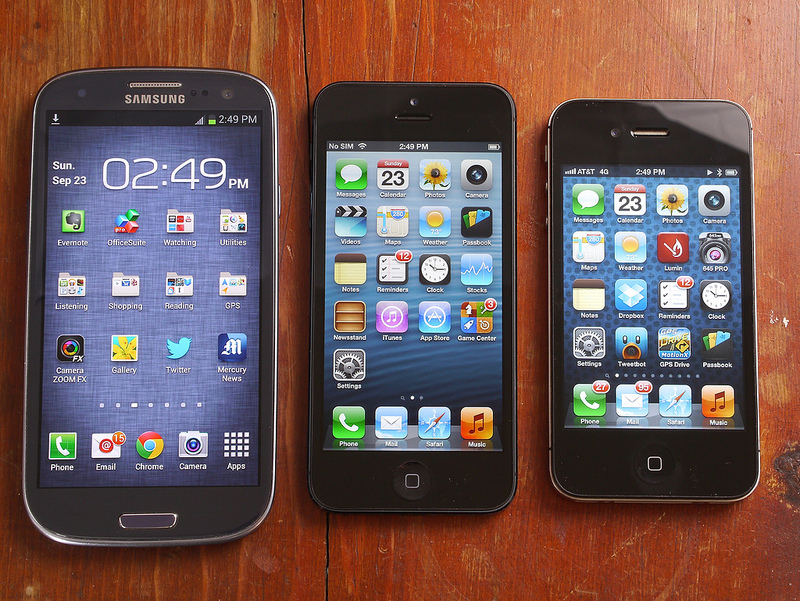
Score one for Samsung in the long-running court battle that started way back in August with that billion-dollar judgement against the Korean company.
[aditude-amp id="flyingcarpet" targeting='{"env":"staging","page_type":"article","post_id":578677,"post_type":"story","post_chan":"none","tags":null,"ai":false,"category":"none","all_categories":"business,mobile,","session":"A"}']As a result of that win, Apple is seeking a ban on the importation of Samsung’s Android smartphones and tablets. Samsung, of course, is arguing that this is unnecessary, while also trying to overturn that judgement. U.S. District Court judge Paul Grewal’s decision today makes a ban on Samsung products much less likely.
Essentially, the legal logic is this: Apple can’t have its cake and eat it too.
AI Weekly
The must-read newsletter for AI and Big Data industry written by Khari Johnson, Kyle Wiggers, and Seth Colaner.
Included with VentureBeat Insider and VentureBeat VIP memberships.
In other words, Apple cannot both argue that Samsung’s infringements are so severe that basically all of its Android smartphones must be banned from importation into the U.S., and at the same time cut a licensing deal with HTC that allows substantially similar products to enter the American market.
Danger for Apple
Knowing what HTC has already negotiated with Apple, of course, is a major advantage to Samsung if and when it chooses to seek a licensing agreement of its own. HTC’s royalty payment, reached at the end of negotiations, would be the new deal’s starting point, and Samsung — especially with its vastly great volumes of shipped product — could hardly fail to negotiate a better deal.
HTC had argued to the court that the agreement should not be shared — at least not with all financial data — because of the agreement’s competitive value to Samsung.
Judge Grewal, however, disagreed.
In his order, Grewal said that “the court is not persuaded by HTC’s argument.” Citing legal precedent, he added that “many third parties to this case have had their licensing agreements disclosed – without any redaction of financial terms.” In addition, Grewal further wrote that “the confidential financial terms [are] clearly relevant to the dispute between Apple and Samsung.”
Danger for Samsung
There is some danger for Samsung here as well, however.
[aditude-amp id="medium1" targeting='{"env":"staging","page_type":"article","post_id":578677,"post_type":"story","post_chan":"none","tags":null,"ai":false,"category":"none","all_categories":"business,mobile,","session":"A"}']
It cannot argue in good faith that a full injunction is not necessary (because licensing worked for HTC) if it really has no intention whatsoever of actually working out some kind of licensing agreement with Apple. Which, of course, at least one company executive has gone on record saying the company has absolutely no intention of doing.
So committing itself to this course puts it on the path, at least temporarily of working out some kind of arrangement with Apple, perhaps based on the HTC model.
That path can be altered, of course, if Samsung successfully overturns the original judgement.
The saga will doubtless continue after a Thanksgiving hiatus.
[aditude-amp id="medium2" targeting='{"env":"staging","page_type":"article","post_id":578677,"post_type":"story","post_chan":"none","tags":null,"ai":false,"category":"none","all_categories":"business,mobile,","session":"A"}']
photo credit: andyi via photopin cc, hat tip: Apple Insider
VentureBeat's mission is to be a digital town square for technical decision-makers to gain knowledge about transformative enterprise technology and transact. Learn More